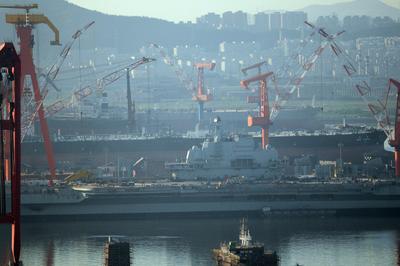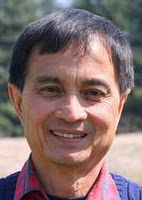Politics
now browsing by category
Beyond the Chinese Monroe doctrine
But bilateralism alone will not suffice. China should remember that ASEAN — or the closely-related East Asia Summit — has the responsibility of reducing tensions and addressing threats to regional stability as a whole, and nothing challenges regional stability more at this point than the SCS dispute.
Beyond the Chinese Monroe doctrine
Author: Amitav Acharya, American University
The escalating regional tensions over territorial disputes in the South China Sea (SCS) have revived two crucial questions facing Asia’s strategic future: whether China is pursuing a ‘Monroe Doctrine’ over its neighbourhood, including the SCS area; and how far China’s neighbours can go in acquiescing to its rising power.

The Monroe Doctrine was first enunciated in 1823 by then-US President James Monroe as the policy of a rising US forbidding European powers to either colonise or interfere in the affairs of states in the Western Hemisphere. The essence of the Monroe Doctrine was to deny the Latin American and Caribbean region to European powers, and establish US regional hegemony.
Some see parallels between that policy and China’s rise today. The SCS is China’s backyard and, like 19th century-America, China is a rising power.
In his 2001 book, The Tragedy of Great Power Politics, John Mearsheimer argued: ‘A wealthy China would not be a status quo power but an aggressive state determined to achieve regional hegemony’. Chinese military modernisation appears to be headed exactly in such a direction, developing what military analysts term ‘anti-access, area denial’ capability. In March 2010, the Commander of the US Pacific Command, Admiral Robert Willard, warned: ‘China’s rapid and comprehensive transformation of its armed forces … challenge our freedom of action in the region,’ and ‘potentially infringe on their [US allies’] freedom of action’.
Posted in Economics, Education, Politics, Researches, Social | Comments Off on Beyond the Chinese Monroe doctrine
Tags: China's rise, Hegemony, Monroe Doctrine
Danger of new autocrats underestimated
The new autocrats’ priority is political control: A person prepared to acknowledge the ruling group’s supremacy and follow its directives is allowed a certain amount of autonomy to operate. “Loyalists are rewarded, enemies are punished, the neutral are neglected or casually abused,” says the report…
On Cambodia, Kurlantzick writes, “members of China’s Communist Party have advised Prime Minister Hun Sen’s party on how to use laws for libel and defamation to scare the independent media, create a network of senior officials who can control major companies, and instill loyalty in special police and bodyguard forces.”
PACIFIC DAILY NEWS
 Dec. 14, 2011
Dec. 14, 2011
Danger of new autocrats underestimated
A. Gaffar Peang-Meth
Two years ago, I presented in this space a June 2009 posting in Foreign Policy Online titled “Authoritarianism’s New Wave,” about a “new class of autocrats” and their “most serious challenge” to the rules of law, human rights, and open expression. The piece was jointly written by Jennifer Windsor, Jeffrey Gedmin and Libby Liu, of Freedom House, Radio Free Europe, and Radio Free Asia, respectively.
The three organizations also published a report, “Undermining Democracy: 21st Century Authoritarians,” on the strategies and methods of five countries — China, Iran, Pakistan, Russia and Venezuela — “to impede human rights and democratic development” within and beyond their borders.
The report asserted “advocates for freedom” — democrats in those countries — receive little attention and few resources from the democratic world because the systems that persecute them “are poorly understood” and that Western “policymakers do not appear to appreciate the dangers these 21st century models pose to democracy and rule of law around the world.”
Posted in Economics, Education, Politics, Researches, Social | Comments Off on Danger of new autocrats underestimated
Tags: A. Gaffar Peang-Meth, China and the impeding of democracy, modern autocrats
Life in a Cambodian rubbish dump
While Cambodia is notorious for its current prestige of success by just comparing to the horrible KR regime, another corner of Cambodian life is living in the dump near the prestigious Angkor Wat monument. Peace without justice is a fake peace. Peace without social equality is a murderous one…Sophoan
By Amy SimmonsUpdated November 11, 2011 19:12:39
Just 30 kilometres from Cambodia’s world famous Angkor temples is an astounding sight tourists don’t see.
Tucked away from foreign eyes on the outskirts of Siem Reap is a community of about 500 people who live – or survive – in a rubbish dump.
Spanish photojournalist Omar Havana spent seven months from October 2010 to April 2011 getting to know the people at the dump and documenting their lives.
He says what he saw was was “from another world”, but that the people are happy.
Here Havana shares his photos and stories with ABC News Online.
One day in Cambodia a boy told me he had been living for many years in the rubbish dumps. I tried hard to get permission to visit them but I didn’t, so I made the decision to go without permission. What I saw there was from another world.
In total there are about 500 people working there, most of whom also live, sleep, eat and drink there. After working for several months in the dumps I even saw a child birth.
With 34 per cent of the total population living on less than $1 a day, those in the dumps, at least they can find food and shelter. They earn about 35 cents per day for 14 hours’ work.
Posted in Education, Politics, Researches, Social | 2 Comments »
Tags: angkor wat, life in a dump, Siem Reap
Villagers salute Chea Dara
Phnom Penh Post
- Khouth Sophak Chakrya
- Monday, 28 November 2011

A monk sprinkles water over the body of Chea Dara, whose body was pulled from the Mekong hours earlier on Saturday in Kandal province’s Kien Svay district.
A mother whose family face eviction from their home at Boeung Kak lake was farewelled at a funeral on Saturday evening, hours after her body was found in the Mekong River.
Chea Dara’s body was identified by family members on Saturday in Samraong Thum commune, Kien Svay district, Kandal province, after three boys fishing in Samraong Thum commune earlier reported seeing a body floating there.
Chea Dara’s husband, Doeur Phou, told the Post on Thursday that his wife had jumped off the Chruoy Changva bridge because authorities had condemned their family to homelessness.
Read More …
Posted in Economics, Politics, Social | Comments Off on Villagers salute Chea Dara
Tags: Boeung Kok Lake, Chea Dara, Evication, Suicide because of development













